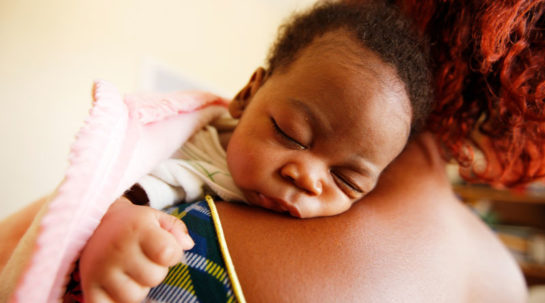Early intervention can block the virus
Nearly all babies infected with HIV get the virus from their mothers. HIV can be transmitted during pregnancy, labour, delivery or breastfeeding. Without intervention, 15-45 percent of babies with HIV-positive mothers will be infected. Transmission of the virus can be almost fully prevented, however, if both the mother and the baby are provided with antiretroviral (ARV) drugs as early as possible in pregnancy and during breastfeeding.

By the numbers
-
80 percent
Of the estimated 1.1 million pregnant women living with HIV received antiretroviral treatments to prevent transmission to their children
-
35 percent
The proportion that new infections among children declined 2010-2017
-
51 percent
The reduction in HIV-related deaths from the peak in 2004
Why is Unitaid investing in preventing mother-to-child HIV transmission?
From 2010 to 2017, access to treatment for pregnant and breastfeeding women living with HIV increased from 51 to 80 percent. Still, about 180,000 children under 5 were newly infected, or about 20 an hour.
Children aged 0–4 years living with HIV face the highest risk of AIDS-related deaths, compared with all other age groups. Young children are often diagnosed and treated too late.
On a very encouraging note, more and more countries are making progress in this area. Among those that in recent years have been certified by WHO as having eliminated mother-to-child HIV transmission are: Cuba, Anguilla, Antigua and Barbuda, Bermuda, Cayman Islands, Montserrat, St. Kitts and Nevis, Thailand, Belarus, Armenia and the Republic of Moldova.

